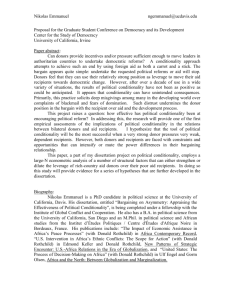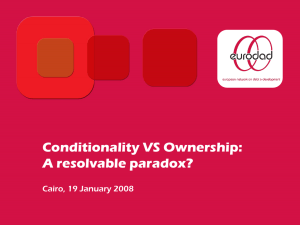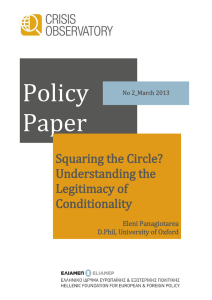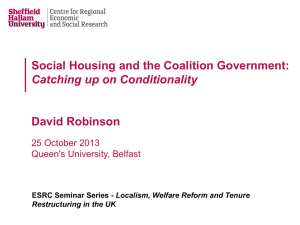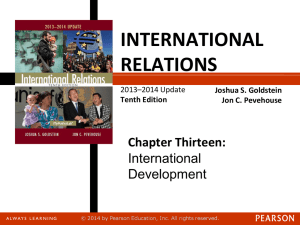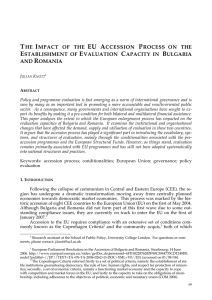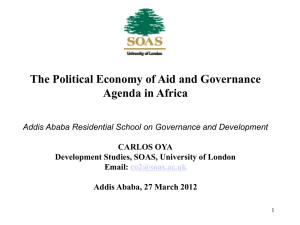EU Conditionality and Bulgaria`s and Romania`s Economic
advertisement
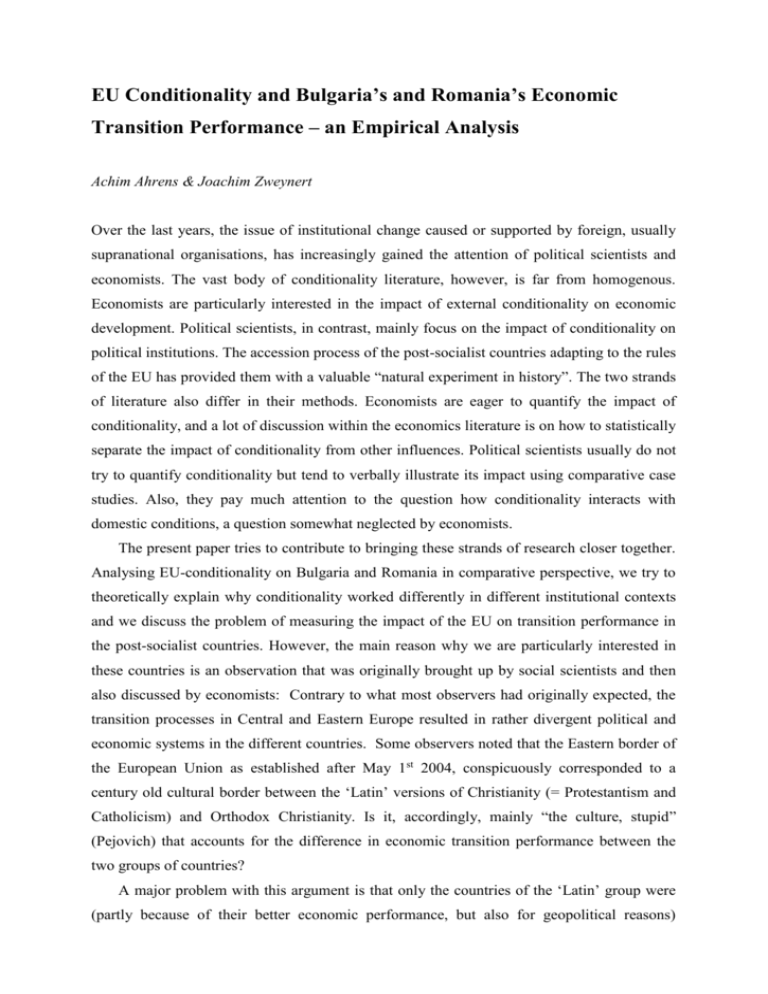
EU Conditionality and Bulgaria’s and Romania’s Economic Transition Performance – an Empirical Analysis Achim Ahrens & Joachim Zweynert Over the last years, the issue of institutional change caused or supported by foreign, usually supranational organisations, has increasingly gained the attention of political scientists and economists. The vast body of conditionality literature, however, is far from homogenous. Economists are particularly interested in the impact of external conditionality on economic development. Political scientists, in contrast, mainly focus on the impact of conditionality on political institutions. The accession process of the post-socialist countries adapting to the rules of the EU has provided them with a valuable “natural experiment in history”. The two strands of literature also differ in their methods. Economists are eager to quantify the impact of conditionality, and a lot of discussion within the economics literature is on how to statistically separate the impact of conditionality from other influences. Political scientists usually do not try to quantify conditionality but tend to verbally illustrate its impact using comparative case studies. Also, they pay much attention to the question how conditionality interacts with domestic conditions, a question somewhat neglected by economists. The present paper tries to contribute to bringing these strands of research closer together. Analysing EU-conditionality on Bulgaria and Romania in comparative perspective, we try to theoretically explain why conditionality worked differently in different institutional contexts and we discuss the problem of measuring the impact of the EU on transition performance in the post-socialist countries. However, the main reason why we are particularly interested in these countries is an observation that was originally brought up by social scientists and then also discussed by economists: Contrary to what most observers had originally expected, the transition processes in Central and Eastern Europe resulted in rather divergent political and economic systems in the different countries. Some observers noted that the Eastern border of the European Union as established after May 1st 2004, conspicuously corresponded to a century old cultural border between the ‘Latin’ versions of Christianity (= Protestantism and Catholicism) and Orthodox Christianity. Is it, accordingly, mainly “the culture, stupid” (Pejovich) that accounts for the difference in economic transition performance between the two groups of countries? A major problem with this argument is that only the countries of the ‘Latin’ group were (partly because of their better economic performance, but also for geopolitical reasons) invited to join the EU in May 2004, so that simply tracing back the differences to – however defined – “cultural factors” seems to be highly questionable. This is precisely what makes the case of Bulgaria and Romania so interesting. These countries – both clearly belonging to the ‘Orthodox’ group – provide a key example of how conditionality “begins at home”. Having been involved in the accession process from the beginning, the governments in both countries did not really co-operate with the EU until about 1997. Up to that time, they clearly belonged to the group of countries with a significantly poorer transition performance than the first accession group. However, once they had decided to co-operate, their transition performance (our usage of this term will become clear the next section) rapidly improved and is now located somewhere between the two groups (see Figure 1). Figure 1: Unweighted Average of EBRD Transition Indicators The empirical part of the paper is based on a combined with-without and before-after approach, methods that are well established in the IFI conditionality research. We will compare Bulgaria’s and Romania’s transition performance (measured in terms of the EBRD transition indicators) with that of Macedonia and Moldova that are structural similar but were not exposed to EU-conditionality. Our basic idea is very simple indeed: If it can be shown that Bulgaria and Romania were on the same development trajectory as other countries not being object of EU conditionality but shifted to another trajectory once they had decided to expose themselves to conditionality, the difference might be interpreted as the result of EU conditionality.
